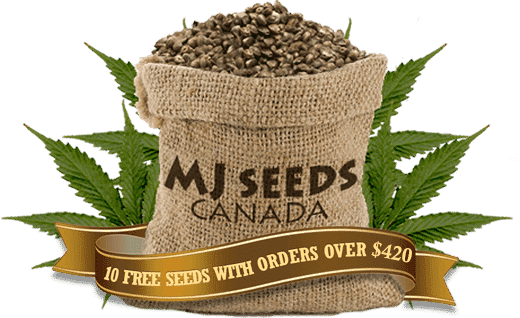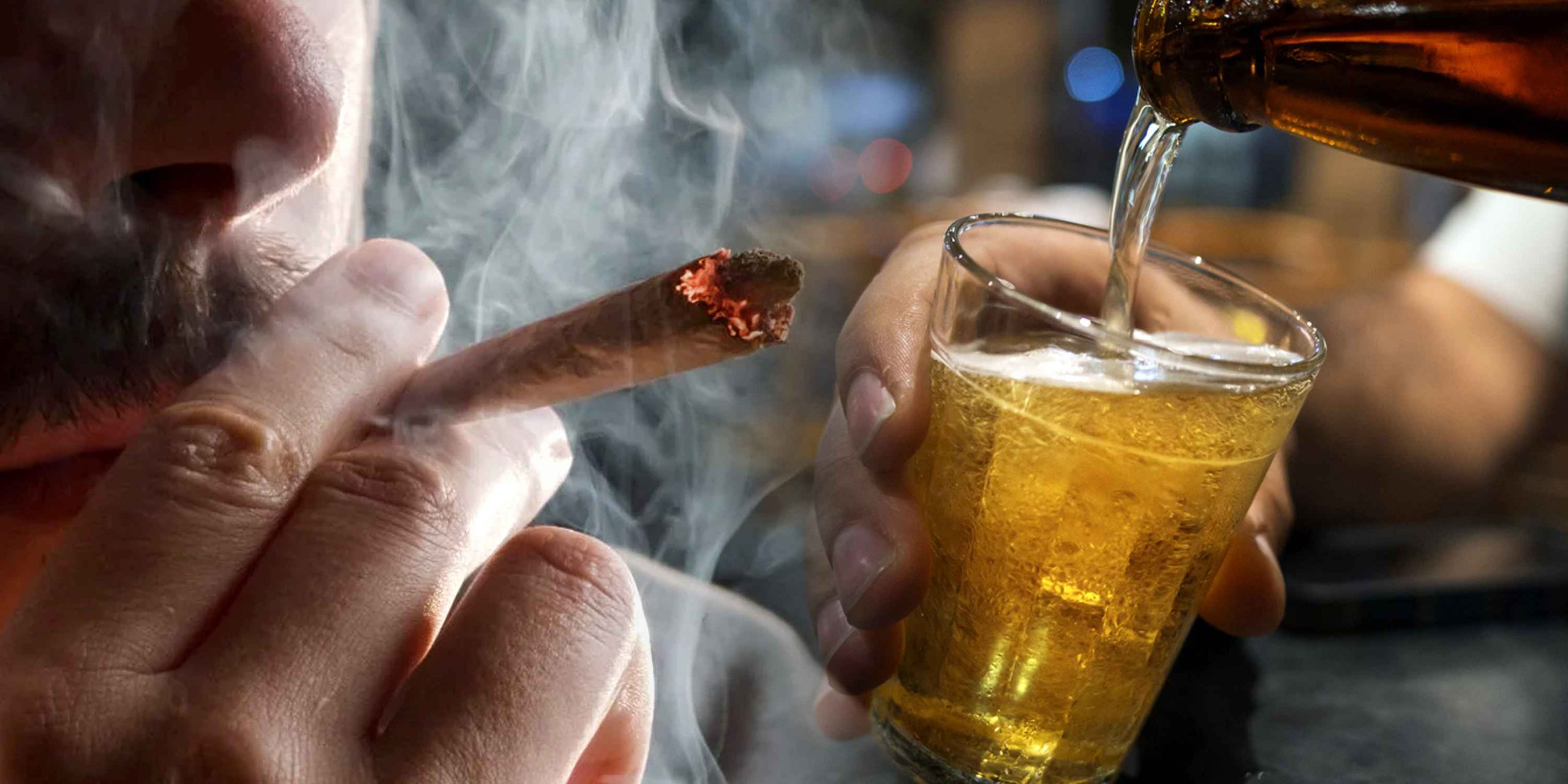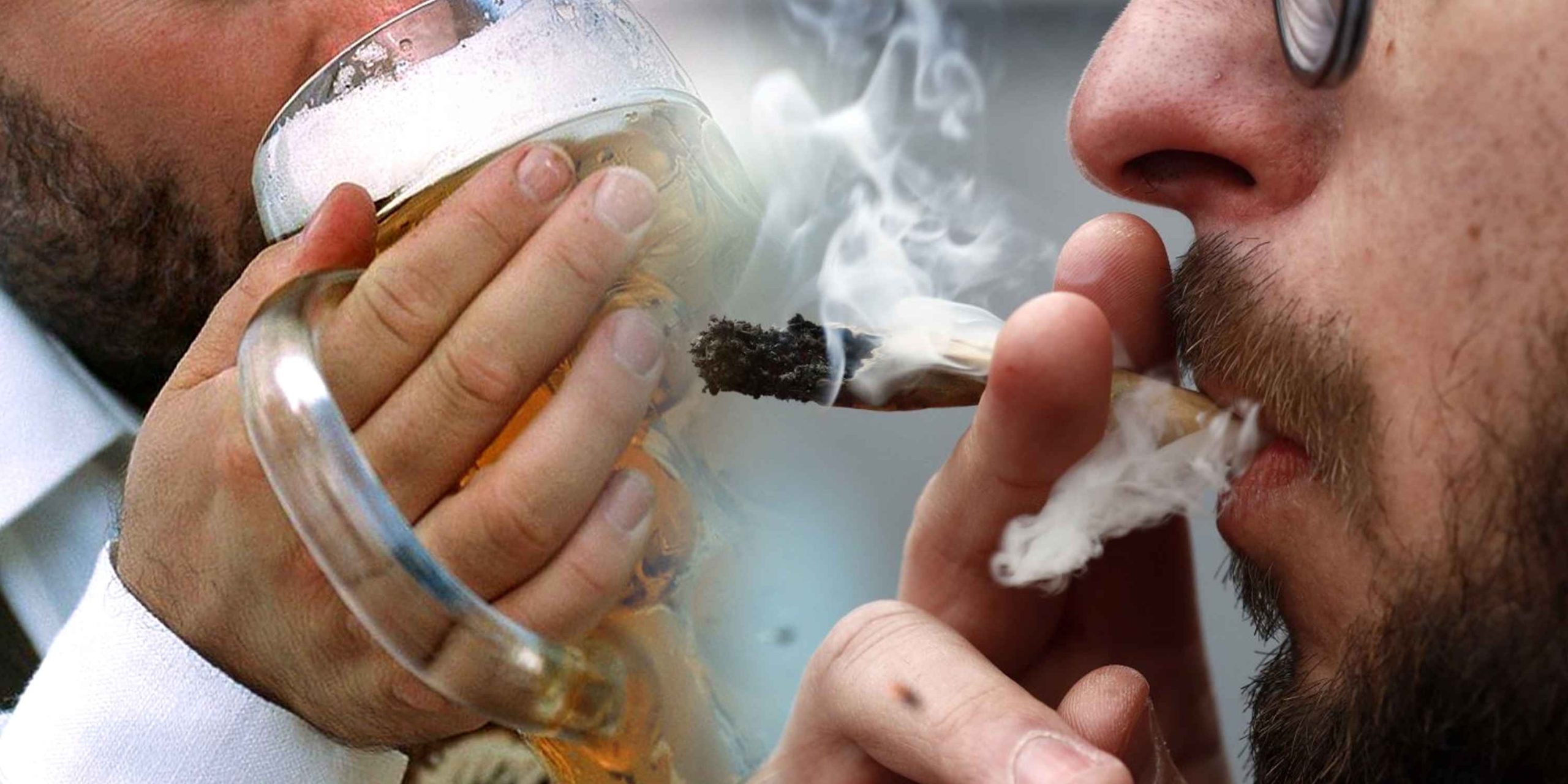The difference between being drunk vs high lies in the effects they produce on the body and mind. Understanding their differences is essential for responsible substance use. While both states alter perception and behavior, being drunk typically involves impaired coordination and judgment due to alcohol consumption, while being high often involves euphoria and altered sensory perception due to cannabis consumption.
Weed and Alcohol Consumption
When comparing weed and alcohol consumption, it’s essential to recognize their distinct effects on the body and mind. While both substances can alter mood and perception, they do so in different ways. Weed often brings relaxation, euphoria, and changed senses, whereas alcohol causes intoxication, coordination issues, and reduced inhibitions. Weed poses fewer health risks and milder withdrawal symptoms compared to alcohol. Responsible use of both requires understanding their effects and moderate consumption to ensure well-being and minimize negative outcomes.
Being High vs Being Drunk
Being drunk and high are two distinct states of altered consciousness, each resulting from the consumption of different substances. While both experiences can affect cognition, mood, and behavior, there are significant difference between high and drunk. Here’s a breakdown of the key distinctions:
1. Effects on the Body:
Being High (Cannabis): When someone is high from cannabis, they may experience feelings of euphoria, relaxation, altered perception of time and space, increased sensory perception, and heightened creativity. Physical effects may include increased heart rate, dry mouth, and bloodshot eyes.
Being Drunk (Alcohol): Being drunk from alcohol consumption typically involves impaired motor skills, coordination, and judgment. It can lead to slurred speech, slowed reaction times, decreased inhibitions, and loss of balance. Physical effects may include nausea, vomiting, and hangover symptoms.
2. Mental Effects:
Being High (Cannabis): Cannabis can produce a range of mental effects, including mood elevation, introspection, and heightened creativity. Some people may experience anxiety or paranoia, especially with high doses or in unfamiliar settings.
Being Drunk (Alcohol): Alcohol intoxication often results in changes in mood and behavior, such as increased confidence or aggression. It can impair cognitive function and memory, leading to blackouts or gaps in memory.
3. Duration of Effects:
Being High (Cannabis): The duration of being high from cannabis varies depending on factors such as the method of consumption, dosage, and individual tolerance. Generally, the effects of cannabis can last from a few hours to several hours.
Being Drunk (Alcohol): The effects of alcohol intoxication typically peak within a few hours of consumption and may last for several hours, depending on factors such as the amount consumed, individual tolerance, and metabolism.
4. Health Risks:
Being High (Cannabis): While cannabis use is generally considered to be less harmful than alcohol consumption, it still carries potential risks, such as impaired cognitive function, respiratory issues from smoking, and dependence or addiction with heavy or prolonged use.
Being Drunk (Alcohol): Alcohol consumption is associated with a wide range of health risks, including liver damage, cardiovascular problems, addiction, and an increased risk of accidents, injuries, and violence.
5. Legal Status:
Being High (Cannabis): The legal status of cannabis varies depending on location, with some regions legalizing its use for medicinal and/or recreational purposes, while others maintain strict prohibitions.
Being Drunk (Alcohol): Alcohol is legal for adults in most parts of the world, though there are regulations governing its sale, distribution, and consumption, such as age restrictions and laws against driving under the influence.
Getting High vs Drunk: Which Is Better?
The debate between getting drunk and getting high has long been a contentious one, with proponents on both sides arguing for the merits of their chosen indulgence. While getting drunk and getting high both alter one’s state of mind and body, the effects they produce are fundamentally different.
When one gets drunk, alcohol depresses the central nervous system, resulting in impaired coordination, slurred speech, and altered judgment. Conversely, getting high on substances like marijuana induces euphoria, relaxation, and altered sensory perception.
Some argue alcohol’s social acceptance contrasts with cannabis’s perceived therapeutic advantages and fewer adverse effects, making it a preferred option. Choosing between intoxication methods depends on personal preferences, social norms, and health factors.
Is being high and drunk the same feeling?
Being high and being drunk are not the same feeling. While both alter one’s state of mind, they produce distinct effects on the body and mind. Being drunk typically involves a feeling of impairment, loss of coordination, slurred speech, and reduced inhibitions due to alcohol’s depressant effects on the central nervous system. On the other hand, being high often involves euphoria, relaxation, altered sensory perception, and heightened creativity, commonly associated with substances like marijuana. The experiences vary widely, with being high often described as more mellow and introspective compared to the more unpredictable and sometimes aggressive nature of being drunk.
Conclusion
In conclusion, while both being drunk and being high involve altered states of consciousness, they have distinct effects and risks. Understanding the differences between the two can help individuals make informed decisions about substance use and minimize potential harm. Whether someone chooses to consume alcohol or cannabis, it’s essential to do so responsibly and consider the impact on both personal health and safety.
Frequently Asked Questions
1. Are the experiences of being high and being drunk similar?
While both alter one’s state of mind, the experiences of being high and being drunk are distinct. Being high is often described as more mellow and reflective, while being drunk can vary widely in its effects, sometimes leading to unpredictable behavior.
2. Does being high feel like being drunk?
Being high and being drunk are different experiences. Being high often involves euphoria, relaxation, and altered perception. Being drunk typically includes impaired coordination, slurred speech, and decreased inhibition.
3. What are the main differences between being drunk and being high?
Being drunk typically involves impaired coordination, slurred speech, and altered judgment due to alcohol’s depressant effects. Being high often involves euphoria, relaxation, altered sensory perception, and increased creativity, commonly associated with substances like marijuana.
4. Can you be both drunk and high at the same time?
Yes, it’s possible to be both drunk and high simultaneously if one consumes both alcohol and drugs. However, combining substances can increase the risks of adverse effects and complications, including overdose and impaired cognitive function.
5. How do you describe someone high?
A high person may exhibit euphoria, relaxation, altered perception of time and space, increased appetite, and heightened sensory experiences. They may appear relaxed, giggly, or introspective, with dilated pupils and possibly bloodshot eyes. Their speech and movements may be slower or more deliberate than usual.





